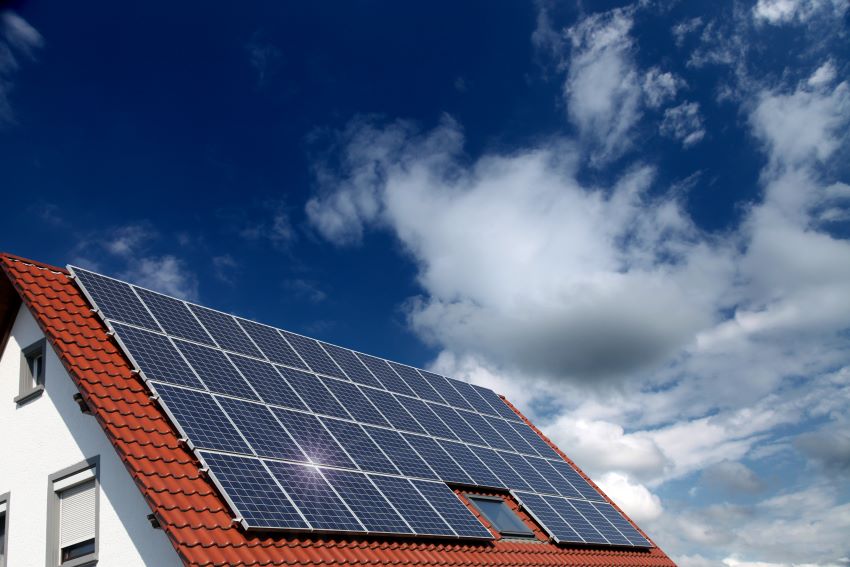
Advantages and Disadvantages of Solar Panels
Spring is finally here and, once again, the warmer weather means higher utility bills for Minnesota homeowners. The one question that board or committee members seem to field most often this time of year is whether to allow the installation of solar panels on member homes. Solar power is an efficient, cost-effective way to offset rising energy costs while reducing the overall carbon footprint of the home. However, it’s important to weigh the pros and cons when considering this as an alternate energy source. Read on as we discuss the advantages and disadvantages of solar panels and what obligations, if any, the HOA has to the community.
What are solar panels?
Simply put, solar panels convert the sun’s energy into electricity. The panels collect solar (or photovoltaic) cells that generate electricity through the photovoltaic effect – the creation of voltage and electric current in a material exposed to solar light. There are three common types of panels as well as various ways to install them:
Monocrystalline – Made from single-crystal silicone, these panels are highly efficient and sleek but generally more expensive than other options.
Polycrystalline – Also made from silicon but comprised of many fragments melted together on a single wafer, these panels are less expensive but less efficient.
Thin Film – Made from a variety of materials that tend to be more lightweight and flexible than silicon panels, these panels are less efficient and do not perform as well as the previous two options.
How are solar panels installed?
There are different installation methods used to install solar based on the condition and slope of the home’s roof, as well as the location of the sun relative to the roof’s surface.
Flat Roof
Ballasted Mount: Uses weights instead of bolts to hold the equipment on the flat roof.
Mechanically Attached: Uses bolts and mounts the posts to the roof. This typically involves adding additional leak prevention.
Hybrid Mount: Combination between the ballasted and mechanically attached method to reduce roof penetration while ensuring the panels are securely attached in areas of concern.
Pitched Roof
Mechanically Attached: Uses bolts and mounts the solar panels to the roof. This is the most common form and the most difficult.
Ground Mount
Ground Attached: Uses a wedge structure that anchors the solar panel frame to the ground with a concrete base.
Advantages and Disadvantages to Solar Panels
There are many advantages to installing solar as an alternate energy source including cost savings in the form of lower utility bills and government rebates and/or tax breaks, which can pay for the panels over time. Solar panels also increase the value of the home and reduce the carbon footprint of the homeowner by using less energy than traditional electrical grids.
The biggest disadvantage to solar panels is the large up-front cost for installation, anywhere from $10,000 – $15,000 in Minnesota. While the panels themselves are generally durable and can last 20 years or more, this is not an ideal investment for the short-term ownership of the property. Also, solar panels do not work with every type of roof. Initial research is crucial to determine if this is a good option based on the style of the home. Finally, since solar panels attach directly to the roof, there is an increased chance of damage resulting in increased leaking when it rains or snows.
Currently, there is no legislation requiring community associations to allow solar panels on the property. Each individual association, specifically the Board of Directors, has the right to set their own guidelines and requirements. This includes the ability to prohibit solar panel installations unless otherwise specified in the association’s governing documents. It may be in the best interest of the board to set guidelines for solar panels regarding what should or should not be allowed. If the Board of Directors is not sure how to proceed, it’s advisable to solicit input from homeowners at the next annual meeting or through a survey.
Omega Property Management is ready to serve all your association’s needs. For additional information and questions, please email our customer service team at service@omega-mgt.com or call 763.449.9100.
